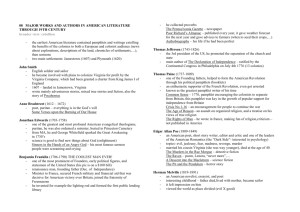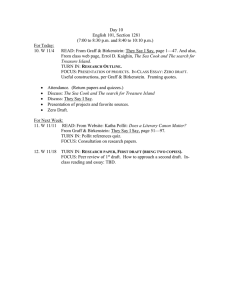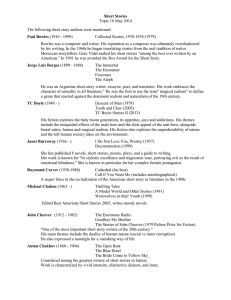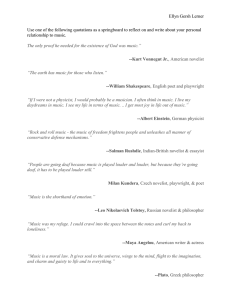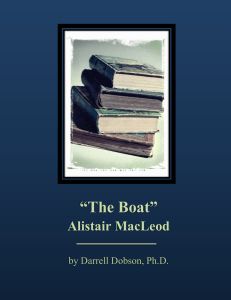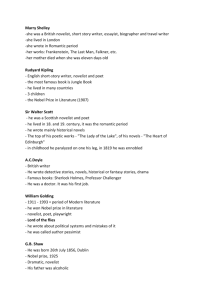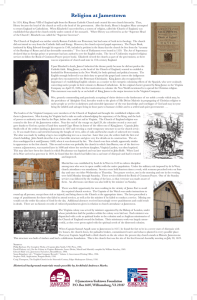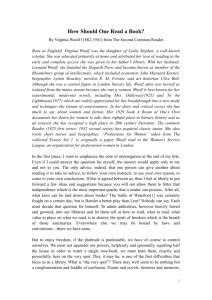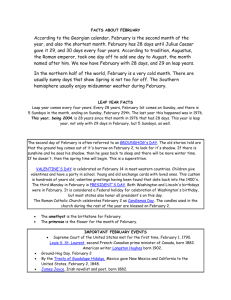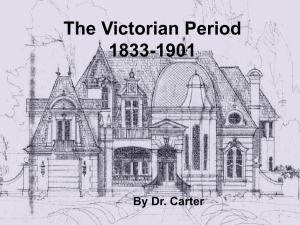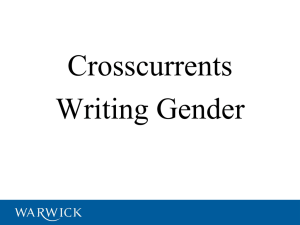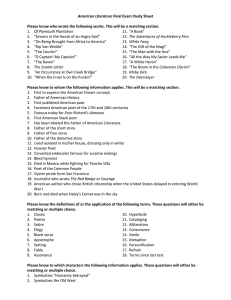AMERICAN LITERATURE THROUGH 19TH CENTURY
advertisement
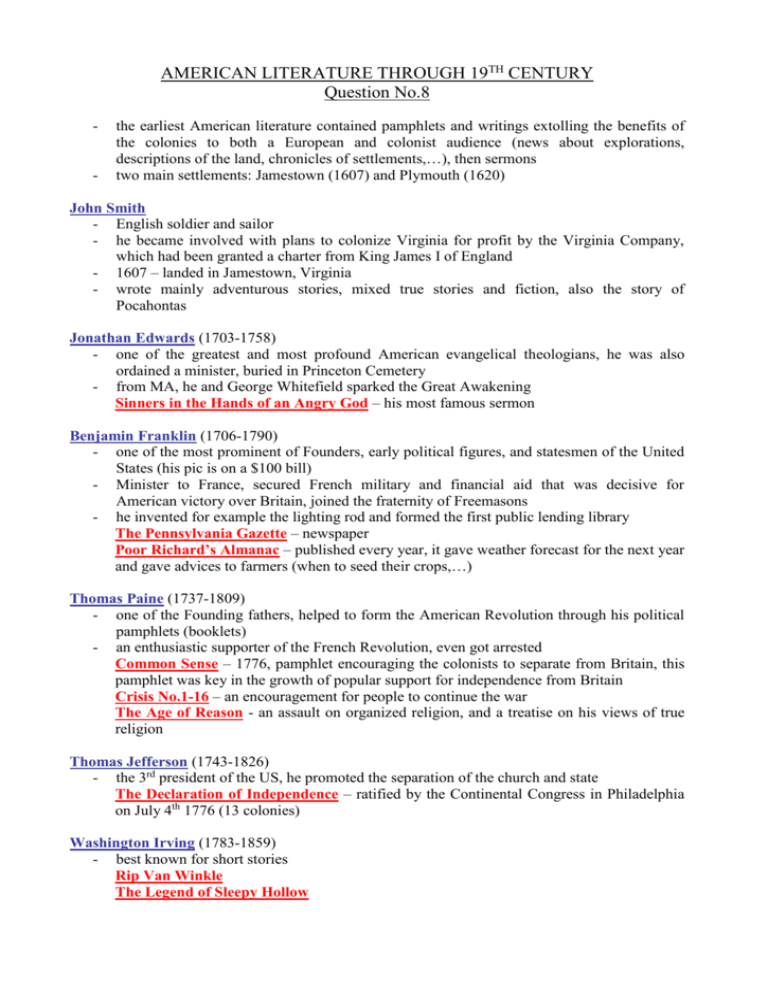
AMERICAN LITERATURE THROUGH 19TH CENTURY Question No.8 - - the earliest American literature contained pamphlets and writings extolling the benefits of the colonies to both a European and colonist audience (news about explorations, descriptions of the land, chronicles of settlements,…), then sermons two main settlements: Jamestown (1607) and Plymouth (1620) John Smith - English soldier and sailor - he became involved with plans to colonize Virginia for profit by the Virginia Company, which had been granted a charter from King James I of England - 1607 – landed in Jamestown, Virginia - wrote mainly adventurous stories, mixed true stories and fiction, also the story of Pocahontas Jonathan Edwards (1703-1758) - one of the greatest and most profound American evangelical theologians, he was also ordained a minister, buried in Princeton Cemetery - from MA, he and George Whitefield sparked the Great Awakening Sinners in the Hands of an Angry God – his most famous sermon Benjamin Franklin (1706-1790) - one of the most prominent of Founders, early political figures, and statesmen of the United States (his pic is on a $100 bill) - Minister to France, secured French military and financial aid that was decisive for American victory over Britain, joined the fraternity of Freemasons - he invented for example the lighting rod and formed the first public lending library The Pennsylvania Gazette – newspaper Poor Richard’s Almanac – published every year, it gave weather forecast for the next year and gave advices to farmers (when to seed their crops,…) Thomas Paine (1737-1809) - one of the Founding fathers, helped to form the American Revolution through his political pamphlets (booklets) - an enthusiastic supporter of the French Revolution, even got arrested Common Sense – 1776, pamphlet encouraging the colonists to separate from Britain, this pamphlet was key in the growth of popular support for independence from Britain Crisis No.1-16 – an encouragement for people to continue the war The Age of Reason - an assault on organized religion, and a treatise on his views of true religion Thomas Jefferson (1743-1826) - the 3rd president of the US, he promoted the separation of the church and state The Declaration of Independence – ratified by the Continental Congress in Philadelphia on July 4th 1776 (13 colonies) Washington Irving (1783-1859) - best known for short stories Rip Van Winkle The Legend of Sleepy Hollow James Fenimore Cooper (1789-1851) - novelist The Last of the Mohicans – his masterpiece Edgar Allan Poe (1809-1849) - an American poet, short story writer, editor and critic and one of the leaders of the American Romantics - married his cousin Virginia (she was way younger), died at the age of 40 The Murders in the Rue Morgue – detective fiction The Raven – poem, Lenora, “never more”,… A Descent into the Maelstrom – science fiction The Pit and the Pendulum – horror story Nathaniel Hawthorne (1804-1864) - a novelist and short story writer The Scarlet Letter - Set in Puritan New England in the 17th century, the novel tells the story of Hester Prynne, who gives birth after committing adultery, refuses to name the father, and struggles to create a new life of repentance and dignity Young Goodman Brown Herman Melville (1819-1891) - an American novelist, essayist, and poet Moby Dick – a white whale follows a crew of the Pequod, led by Captain Ahab, on a whaling expedition that takes them around the world; the expedition soon degenerates into a monomaniacal hunt for the legendary "White Whale", as Ahab seeks revenge on the animal that cost him his leg Walt Whitman (1819-1892) - an American poet, essayist, journalist, and humanist born on Long Island, New York; almost entirely self-educated - influenced by the transcendentalist movement – an offshoot of romanticism - praises nature, the human mind, and the human form - founded a “free soil newspaper” – the “Brooklyn Freeman” Leaves of Grass – his most famous collection of poetry Song of myself – most famous poem from this collection O Captain! My Captain! – homage to the assassinated president Lincoln Emily Dickinson (1830-1886) - born in Amherst, MA, to a prominent family, her grand-father was one of the founders of Amherst College - her poetry is recognizable from other poets, uses balad and hymn meter, extensive use of dashes, unconventional capitalization Mark Twain (1835-1910) - humorist and novelist, spent most of his life in Hannibal, Missouri - career of a steamboat pilot, in 1861 he escaped the Civil war by going west - all his books are inspired by his life and mostly by the Mississippi river The Adventures of Tom Sawyer The Adventures of Huckleberry Finn Life on the Mississippi (non-fiction)
